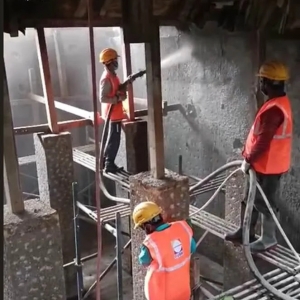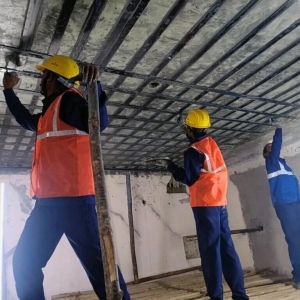In the harsh and unpredictable marine environment, durability and reliability are crucial for every piece of equipment, especially marine searchlights. Among the key factors that determine the ruggedness and functionality of these lights is the Ingress Protection (IP) rating. IP ratings provide a standardized measure of how well a device is protected against solids (like dust) and liquids (like water). For marine searchlights, choosing the right IP rating ensures operational reliability in challenging conditions. This article delves into the importance of IP ratings in marine searchlights and how they influence safety, performance, and longevity.

What Is an IP Rating
An IP rating, or Ingress Protection rating, is defined by the international standard IEC 60529. It consists of two digits:
The first digit (0–6) indicates protection against solid particles (e.g., dust or debris).
The second digit (0–9) denotes protection against liquids, particularly water.
For example, an IP66 rating means:
6: Completely dust-tight.
6: Protected against powerful water jets.

Why IP Ratings Matter in Marine Searchlights
Marine environments subject searchlights to extreme conditions, including:
Salt spray and sea fog
Heavy rain and water spray
High humidity and corrosion risk
Continuous vibration and movement
In such situations, a high IP rating ensures that the searchlight remains functional and safe, regardless of weather or wave conditions.
Common IP Ratings for Marine Searchlights
Several IP ratings are commonly seen in marine searchlights, each offering different levels of protection suited to specific applications:
IP65 searchlights are dust-tight and protected against low-pressure water jets from any direction. They are often used in general-purpose marine environments, such as inside covered areas or on vessels that operate in relatively calm waters.
IP66 searchlights provide the same level of dust protection as IP65 but with higher water resistance, capable of withstanding strong water jets. These are ideal for exposed deck installations or vessels frequently navigating through harsh weather and sea spray.
IP67 searchlights offer full dust protection and can handle temporary immersion in water up to one meter deep. This makes them suitable for installations where occasional submersion or heavy splashing is expected, such as on small crafts or in flood-prone zones.
IP68 searchlights are designed for continuous immersion in water under specified conditions. These are typically used in highly demanding marine environments, including underwater lighting or vessels with extreme exposure to moisture.
IP69K searchlights offer the highest level of protection, guarding against dust ingress and high-pressure, high-temperature water jets. These are typically reserved for military, rescue, or industrial marine applications where durability under extreme stress is essential.
Each of these ratings plays a key role in determining how well a marine searchlight can perform and survive in various conditions at sea. Selecting the right one ensures longevity, reliability, and safety.
Key Benefits of High IP Ratings in Marine Applications
a. Enhanced Durability
High IP-rated searchlights resist corrosion, saltwater intrusion, and mechanical damage, extending service life of the search lights.
b. Increased Safety
Preventing water or dust ingress reduces the risk of short circuits or light failures, improving crew safety during navigation and emergency operations.
c. Reduced Maintenance
Sealed, high-IP-rated units require less frequent cleaning, sealing, and inspection, lowering overall maintenance costs.
d. Consistent Performance
With better protection, marine searchlights deliver consistent brightness and focus, even during storms or rough sea conditions.
How to Choose the Right IP Rating for Your Marine Searchlight
When selecting a marine searchlight, consider the operational environment:
Open Decks or Exposed Areas: IP66 or higher to handle strong water jets and salt spray.
Pilot Houses or Protected Zones: IP65 may be sufficient.
Submersion or Frequent Dousing: IP67 or IP68 is ideal for high-risk exposure.
Military or Rescue Operations: IP69K for the highest reliability under intense conditions.

Summary
IP ratings are more than just technical specifications—they're essential indicators of a marine searchlight’s ability to endure the rigors of life at sea. Choosing a searchlight with an appropriate IP rating ensures not only longer operational life but also safer navigation and effective response in critical moments. Whether you're outfitting a commercial vessel, a patrol boat, or a luxury yacht, understanding IP ratings will help you make informed decisions for reliable marine illumination.






